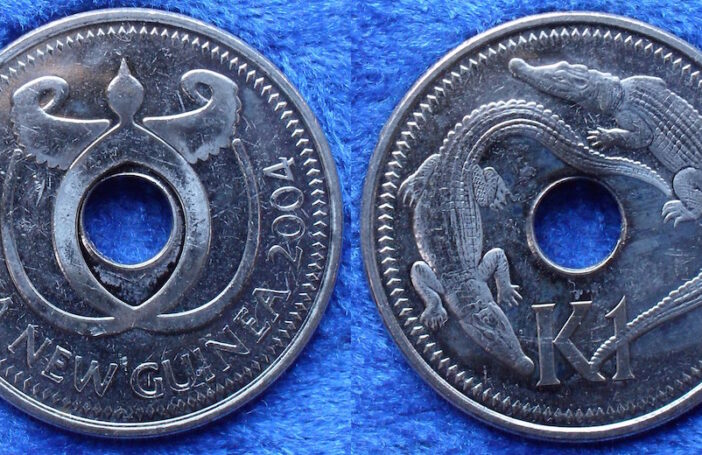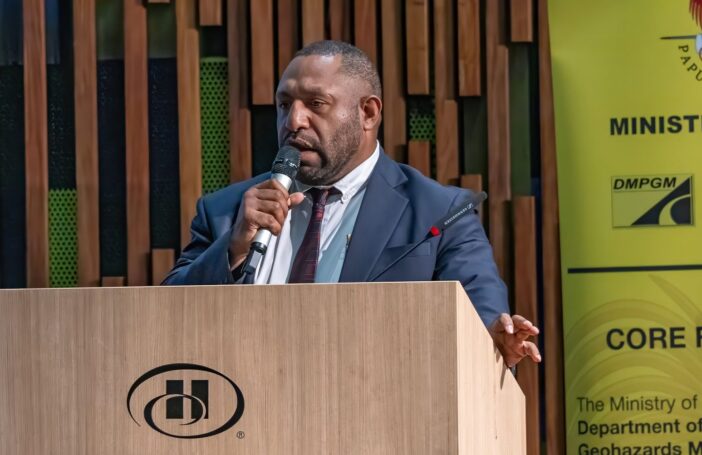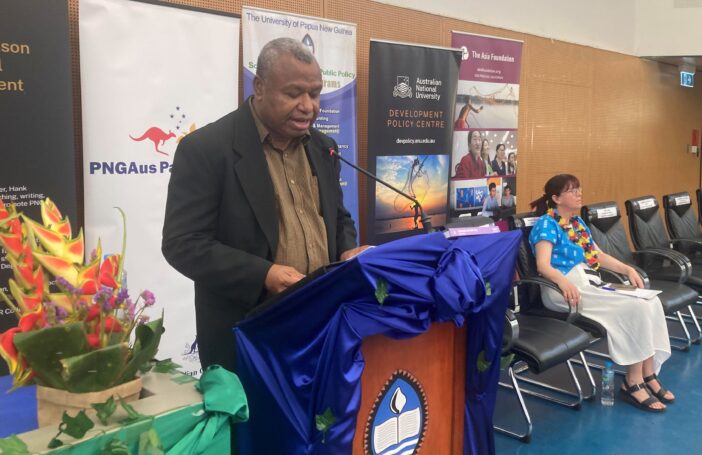In late 2021, following the first phase of a review of the 2000 Central Banking Act (CBA) by an independent advisory group, the Papua New Guinea parliament unanimously amended the CBA. Among other things, the amendments broadened the objectives of the Bank of PNG (BPNG) away from an exclusive focus on inflation to a broader mandate covering both growth and inflation.
The International Monetary Fund (IMF) was not pleased. According to its 2022 report, the amendments “weakened” the CBA, and raised “new concerns”. The IMF singled out the change in the mandate as problematic since the focus on growth “could come into conflict with the price stability mandate”. Indeed, so concerned was the IMF about the CBA reforms that it declared the 2021 amendments to be PNG’s only failure under its recently completed staff-monitored program.
An IMF staff-monitored program has no funding attached to it, but PNG has now shifted to a funded IMF program, which Australia is also backing. As one of the conditions for that loan, the Government of PNG has had to agree to reverse its 2021 amendments and return to making price stability “BPNG’s primary objective”. The program requires that amendments to the CBA “will be drafted in consultation with Fund staff and submitted to Parliament by end-2023”, now just weeks away.
The Australian government is implicated because it has made a large loan in support of the IMF program. This is particularly ironic given that the recent Australian central bank (RBA) review concluded, and the Australian government accepted, that the RBA’s dual mandate should be strengthened. (Australia’s central bank is required to pursue both price stability and full employment.)
Admittedly, every country is different, but siding with the IMF is also at odds with Australia’s stated emphasis on listening to the Pacific. Listening doesn’t have to mean agreeing, but there should be solid grounds for requiring a country to reverse a democratically made decision: the 2021 amendments passed unanimously with support from the opposition.
The IMF clearly has a strong attachment to the view that every central bank should put the fight against inflation first. In fact, most central banks in the Asia-Pacific have multiple, unranked objectives. But even if an “inflation first” mandate is the right approach to take in many countries, it is completely the wrong approach for PNG.
The main problem that the IMF program is trying to solve is that the PNG kina is inconvertible on the current account (that is, there is foreign exchange rationing or queuing) and overvalued. This is now agreed by both the IMF and BPNG.
Exchange rate management is a BPNG responsibility, so how did the Bank allow the current situation of rationing and overvaluation to develop? It was precisely because it was trying to limit inflation. Devaluations are definitely inflationary, and BPNG’s only mandate for monetary policy (prior to 2021) was to limit inflation. And so, as depreciationary pressures grew when PNG’s resource boom ended in 2013, the Bank tried to reduce the extent of devaluation required by introducing rationing to manage the resultant excess demand, taking no account of the damaging impact rationing has on growth. (PNG businesses have since annually ranked foreign exchange shortages as one of if not their top concern.)
We can see this play out through successive IMF annual reports on PNG (the so-called Article IV reports) in the late 2010s which the IMF repeatedly called on BPNG to devalue the currency and the Bank repeatedly responded by expressing its disagreement with this recommendation on the grounds that it would be inflationary.
It is only recently that BPNG has agreed to do more to devalue the kina, albeit only gradually, and to reduce rationing. In part this reflects IMF pressure, but it also reflects the central bank’s new, broadened and pro-growth mandate. In a recent speech, BPNG justified devaluation on the grounds that it will “support growth in the export industries”.
In the same speech (available on the UPNG Facebook page) the Acting Assistant Governor admitted that the kina has been overvalued, and conceded that “the Bank did that in terms of trying to fulfil its mandate of price stability” (45:24).
Clearly, exchange rate regime decisions – which are BPNG’s to make – need to take into account the consequences for both growth and inflation. Otherwise, as PNG’s recent experience has all too clearly shown, a dread of depreciation can take root resulting in foreign exchange rationing being introduced, despite its highly damaging impact on growth, to reduce the need for devaluation.
While the IMF has money on the table it may be able to convince BPNG not to ration foreign exchange, or at least to reduce the degree of rationing, but there will be nothing to stop the central bank returning to rationing once the IMF program is finished. That may not happen straight away, but we need to think about the next bust after the next boom, when the IMF program is a distant memory. What will happen when pressures for devaluation once again mount if there is nothing in BPNG’s mandate to tell it not to revert to rationing?
It makes no sense at all that the IMF is pushing for BPNG to return to a primary price stability mandate. It can only be described as an instance of the IMF pushing conditions on the basis of ideology rather than analysis. Australia, rather than passively supporting the IMF conditions, should listen to PNG, respect the amendments passed unanimously in 2021, and tell the powerful lender to back off.





Thank you Paul, for the peep into the creative accounting. Didn’t start yesterday did it? Has been building as the modus operandi for decades – at least 4 of the past 5.
The elite ran circles around the IMF, WB, a couple of well-meant PMs, the development sector and the population as a whole. It still does. And the result? Human capital development went out the window.
So how??? is what you hear standing in an East Rossel, Lake Murray, ( ) fill in the blanks community. How do we get services?
Hate to tell you about the depressed doctors, decrepit wards and nothing to work with. Worn-out teachers with nothing to teach. GBV as quasi sport. The bulging youth population, brooding in some places like a smouldering volcano.
In the words of the bard “when you ain’t got nothing, you got nothing to lose.” And that’s precisely where it’s at – for the bulk of a young population.
A population of 9-15 (pick a number because your guess is as good as the next) million are not going to sit quietly under a coconut or yar tree for much longer while a treasure trove of natural resources are plundered from under their feet and regional players know it.
The stage is set for the emergence of an authoritarian leader, invasion by stealth or general mayhem.
The time to get real about the land four kilometres (4km) to the north of the one down under is now.
PNG has surprisingly little foreign exchange available on the market considering that it has for many years had one of the world’s highest current account surpluses to GDP. That situation has prevailed even over the past three years when the country’s third largest gold mine was closed at a time of peak gold prices. Restricting access to foreign exchange to various categories of priority goods and, of course, servicing the higher levels of foreign debt, may have usefully restrained imports of consumption goods, as an alternative approach to letting the currency slip and thereby also reducing demand for imports, but this restrictive approach has also had some inflationary impact, as traders/importers can no longer obtain credit and good terms on their purchases, and pass on the higher costs to consumers. As BPNG suggests, if they were in the room when resource project negotiations occurred, rather than just having to comply with the agreements reached with the State, there might been less resource project income held in offshore accounts, and perhaps less generous tax holidays (e.g. to Ramu Nickel for more than 10 years, and generous arrangements provided for LNG operations…or allowing oil producers to metamorphose into LNG operations and no longer remit oil proceeds?) Ironically, it has been the agriculture sector which has been providing much of the foreign exchange required by the rest of the economy, including government, yet this sector, which operates on tight margins and really needs support, in terms of improved infrastructure, critical services and generally enhanced investment conditions, is not given the privilege of offshore accounts, even when producing similar/substitute products, such as vegetable oils. Ironically even the SOEs in the resources sector are allowed their offshore accounts, and rather than utilising the long planned sovereign wealth fund, and a mechanism for balancing onshore budgetary and foreign exchange needs with a sanitisation and equalisation function, these rather unaccountable entities are allowed to grow (on the back of state resources) and operate, effectively, parallel budgets to the Treasury, and as a disruptive influence on monetary management. Of course the next few years, with, potentially Porgera recommencing at the end of Q1, and 2 or major more resource projects entering a construction phase in late 2024-25, could set the scene for a substantially different scenarion, but recognising the serious potential (seen over the past decades) of lurching from one paradigm to another, encouraging careless fiscal management, and certainly necessitating wise heads and measures and helpful guidance and support from PNG’s friends and development partners.
In the meantime, the relatively short season during which votes of no confidence are permitted is about to open up, and is absorbing much attention by the incumbents in office and the aspiring contestants for the role. This invariably poses a dangerous period for sound fiscal management, and for wider economic and resource management. Those that operate in back alleys, like logging companies, often see this as a period when they can exert influence, for example to undermine policies and commitments by government over sustainable land and marine resource management or towards emission, and to grab new resources, or seek to reduce export taxes and generally gain other concessions, even while anxious over the level of demands that might be placed upon them in return. Again, it is a time for citizens and policy advisers to seek to sustain and pursue policies and measures in the national interest, and avert short term and damaging expediency.